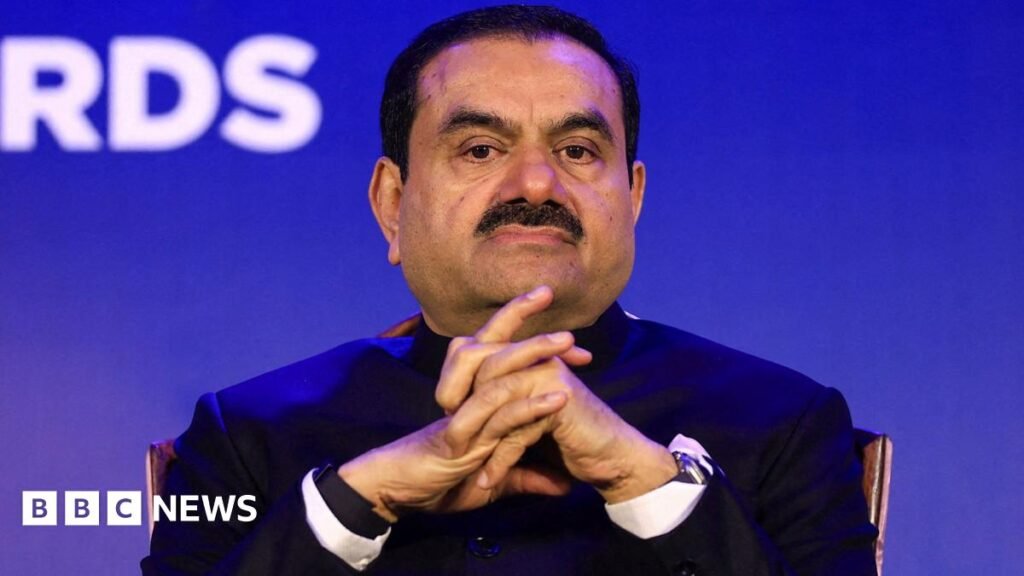Gautam Adani has pledged to invest $100bn (£78.3bn) in India’s energy transition. Its green energy division is the nation’s largest renewable energy company, generating nearly 11 GW of clean energy through a diverse portfolio of wind and solar projects.
Adani aims to increase it to 50 GW by 2030, which will be almost 10% of the country’s own installed capacity.
More than half of that capacity, or 30 GW, will be generated at Khawda in the western Indian state of Gujarat. It is the world’s largest clean energy plant, five times the size of Paris, and is the centerpiece of Adani’s renewable energy crown.
But Khawda and Adani’s other renewable energy facilities are now at the center of charges brought by US prosecutors, who say the company won contracts to supply power to state distribution companies from those facilities in exchange for bribes to Indian officials. The group denied this.
But the consequences at the company level are already visible.
When the allegation became public, Adani Green Energy immediately canceled its $600 million bond offering in the US.
France’s TotalEnergies, which owns 20% of Adani Green Energy and has a joint venture to develop several renewable energy projects with the conglomerate, said it would stop injecting new capital into the company.
Major rating agencies – Moody’s, Fitch and S&P – have since changed their outlook on Adani group companies, including Adani Green Energy, to negative. This will affect the company’s ability to access funds and make it more expensive to raise capital.
Analysts also expressed concern about Adani Green Energy’s ability to refinance its debt as international lenders grow weary of increasing exposure to the group.
Global lenders such as Jeffries and Barclays are already said to be reviewing their relationships with Adani, even as the group’s reliance on global banks and international and local long-term debt issuance has risen from 14% in the 2016 financial year to nearly 60% year-to-date, according to with a note by Bernstein.
Japanese brokerage Nomura says new funding may dry up in the short term but should “gradually recover in the long term.” Meanwhile, Japanese banks such as MUFG, SMBC, Mizuho are likely to continue their relationship with the group.
The “reputational and sentimental impact” will fade in a few months as Adani builds “strong strategic assets and creates long-term value,” the unnamed CEO said.

